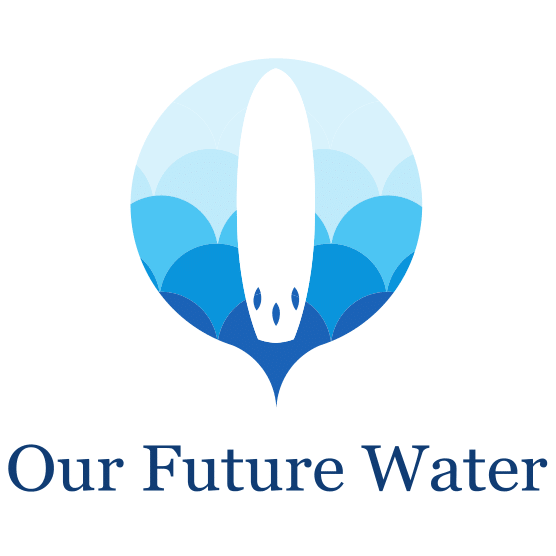Water-Food Nexus: the Future of Water and Food Security
A comprehensive exploration into the symbiotic relationship between food production and water resources.


Course information
- Location:
-
Blended
- Next course starts:
-
10th September 2025
About : Tailored to professionals
Water-Food Nexus: The Future of Water and Food Security is a comprehensive course designed for agriculture, environmental management, and sustainability professionals. This programme explores the critical interconnection between food production and water resources, emphasising the role of circularity principles and sustainable practices in securing the future of both. Participants gain in-depth knowledge of sustainable food production, innovative water conservation technologies, and practical circularity strategies through dynamic modules.
The course focuses on real-world applications, equipping learners to implement sustainable solutions within their own organisations and fields. In addition to technical knowledge, participants develop entrepreneurial thinking for driving system-wide change and benefit from valuable networking opportunities with industry experts at a dedicated in-person event in Berlin.
Why Choose the Water-Food Nexus: The Future of Water and Food Security?
This course is your gateway to mastering the complex relationship between water resources and food production, with clear, practical benefits to advance your career:
- Interdisciplinary Learning: Explore the intersection of environmental science, agriculture, water management, systems thinking, and communication – giving you a truly holistic perspective on sustainable food and water systems.
- Real-World Application: Gain practical solutions you can apply immediately in your professional role, ensuring that what you learn makes an impact from day one.
- Future-Focused Skills: Build advanced competencies in circularity, systems thinking, leadership, problem-solving, critical thinking, and effective communication. These skills will serve you well across the food-water sector and beyond.
- Professional Networking: Connect with a diverse community of professionals working in the water-food nexus, exchange ideas, and foster future collaborations. The in-person event in Berlin offers a unique opportunity to build real-world connections.
- Systems Thinking Mindset: Learn to think differently – this course trains you to approach challenges using systems thinking, empowering you to create sustainable, innovative solutions.
- Learn from the Experts: Be guided by experienced professionals working at the forefront of sustainable food and water systems, ensuring you gain both theoretical insight and real-world knowledge.
- Certification: Upon completion, you’ll receive an official certificate to recognise your advanced skills and specialised expertise.
Whether aiming to solve today’s resource challenges or shape tomorrow’s sustainable systems, this course equips you to lead change.
Who is this for? : The ideal applicant should:
Water-Food Nexus: The Future of Water and Food Security
This course is designed primarily for professionals, while also welcoming Master’s and PhD students seeking to deepen their understanding of water and food security challenges.
Professionals:
The course is particularly suitable for professionals working in environmental sciences, agriculture, water management, sustainability consulting, policy-making, and other roles connected to implementing and managing sustainable practices. Typical participants include individuals working in:
- Public sector organisations, such as departments focused on agriculture, water management, or environmental sustainability, as well as professionals within higher education institutions and vocational education and training providers.
- Private sector companies, including those in agricultural or environmental technology, food and beverage industries, and water utilities.
- Non-profit organisations and NGOs focused on environmental conservation, sustainable agriculture, or water resource management.
- Consultancies specialising in sustainability or environmental services.
Students (Master’s or PhD level):
Current Master’s and PhD students specialising in environmental science, agriculture, water resource management, sustainability, or related fields are also encouraged to join. The course provides practical insights and real-world examples that complement academic learning and support future career development in these sectors.
In summary, this course is ideal for anyone seeking to understand the water-food nexus, sustainable agriculture, water management, and circularity principles. Whether a working professional or an advanced student, participants will benefit from gaining the knowledge and tools to contribute towards a more sustainable future in food and water security.
Structure & Modules
This series of four interactive online modules, culminating in a final hybrid event in Berlin, will immerse participants in the critical relationships between water and food, the growing challenges posed by resource constraints and climate pressures, and the practical tools needed to catalyse systemic change.
Throughout, you will use systems thinking and design thinking to analyse challenges and craft real-world solutions, building skills in technology selection, nature-based strategies, and financial innovation.
The curriculum is designed around hands-on teamwork, scenario-building, and project-based activities. It empowers participants to develop, refine, and present actionable strategies that support water and food security.
- Module 1: Foundations of the Water-Food Nexus and Systems Thinking
Online – September 10th, 2025, 10:00 – 12:30 Central European Time (CET) 2.5 hours (Online)
This introductory module lays the foundation for the course, presenting the core principles of the water-food nexus and the importance of systems thinking in sustainability. Through icebreakers and group activities, participants will build connections, explore the interactions between water and food systems, and identify leverage points for achieving circularity. You will use real-world examples, system mapping, and stakeholder analysis to uncover inefficiencies and opportunities for integration. The session concludes with reflection activities that link theory to your own context and lay the groundwork for a systems-oriented approach throughout the programme.
- Module 2: Design and Technology for Sustainable Water-Food Systems
Online – September 17th, 2025, 10:00 – 12:30 Central European Time (CET) 2.5 hours (Online)
Delve into design thinking and technological innovation as essential drivers of water-food sustainability. The first part introduces the design thinking process—emphasising user-centred, problem-based approaches and fostering both creativity and critical thinking. Working in teams, you will ideate, prototype, and refine solutions to real-world challenges at the intersection of water and food. The second part spotlights innovative technologies for water conservation and quality protection in agriculture. Participants will evaluate technology options, debate implementation challenges, and co-create solutions to a targeted agricultural water management problem.
- Module 3: Nature-Based Solutions and Agricultural Water Circularity
Online – September 24th, 2025, 10:00 – 12:30 Central European Time (CET) 2.5 hours (Online)
This module explores how nature-based solutions (NBS) and circular water practices strengthen resilience in food and water systems. Participants will examine practical applications of NBS—such as buffer zones, wetlands, and agroforestry—to protect water quality and enhance biodiversity. In collaborative teams, you will design context-specific NBS action plans tailored to the agricultural sector. The second half covers water conservation, recycling, and reuse strategies, encouraging you to develop integrated water management approaches that maximise circularity and address real-world implementation barriers.
- Module 4: Financing and Scaling Circular Water-Food Systems
Online – October 1st, 2025, 10:00 – 12:30 Central European Time (CET) 2.5 hours (Online)
Build the financial literacy and strategic mindset needed to implement and scale circular initiatives. This module introduces a range of public and private financing models, including grants, blended finance, and impact investment. Participants will work in groups to design funding strategies for circular food-water projects, evaluating risk, stakeholder roles, and long-term sustainability. The session emphasises translating project concepts into investable, high-impact proposals, integrating lessons from previous modules to support real-world implementation.
- Final Event: The Future of Water and Food Security
Full day (Berlin, November 8th, 2025; on-site and online)
The programme culminates in an immersive hybrid event, bringing together participants, experts, and stakeholders for a day of exchange, project presentation, and professional networking. The event opens with keynote talks and panel discussions, then shifts to a facilitated workshop where participants refine and present their project outputs—design thinking solutions, NBS plans, and finance strategies. The setting fosters peer learning and expert feedback, culminating in a collective reflection session. This event serves as a springboard for continued impact, offering connections and ideas to drive change well beyond the course.
Programme Leaders : Training Partner

Robert Brears
Founder of Our Future Water
robert@ourfuturewater.comPartners : In collaboration with
Related courses
View our full course catalogue

Circular Business Models for Sustainable Urban Food Systems


Sustainable Seafood: Barriers and Solutions in the Fishing Industry


Farm to Fork: Sustainable Food Production in a Changing Environment
